Trafficked war babies of El Salvador search for their long-lost families
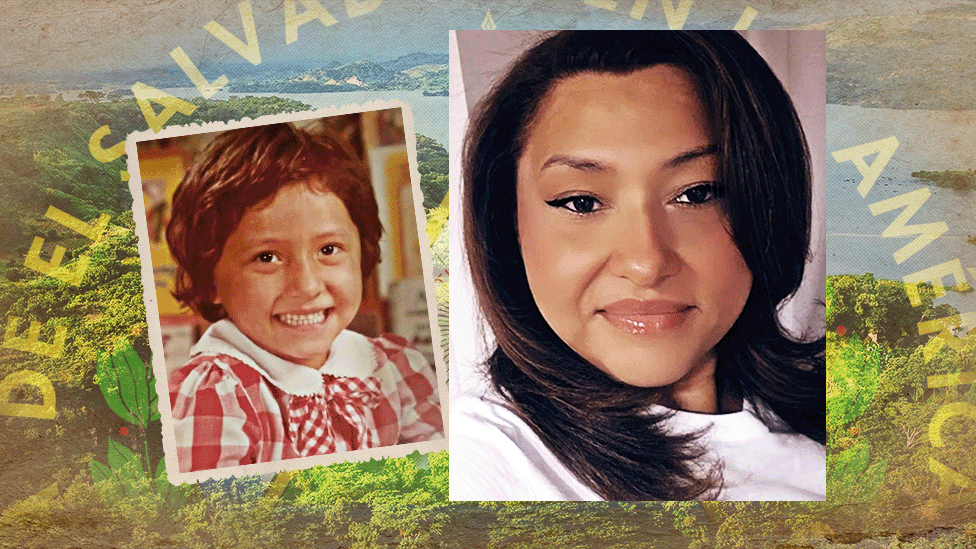
Flor and Jazmin were among many children separated from their parents during El Salvador's civil war, and put up for adoption in the US and Europe. Now, nearly 40 years later, they and many others are searching for their birth families. But has anyone been searching for them?

Flor Wolman has a small scar the size of a quarter dollar coin on the left side of her stomach. Some of the girls at her school in the US used to tease her that it looked like a second belly button.
It's actually a gunshot wound she received when she was a little girl, and it still hurts, says Flor. It's also a constant and painful reminder of her harrowing family history.
"I just want to know what happened, why was I separated from my parents," the 42-year-old says. "And what the scar had to do with my adoption".
She was born Flor de Luz Acosta in 1979 in San Francisco Lempa, a tiny settlement of adobe houses and infertile hillsides in northern El Salvador. It was at the start of the country's bloody civil war. The rugged mountainous region where her family lived was the scene of fierce fighting between Marxist rebels and the US-backed military. Civilians caught in the middle were often regarded as rebel supporters.
Many of Flor's early memories are hazy, there are large bits missing, possibly blocked out by trauma. But she retains some dramatic and vivid snapshots from the past.
"I remember one day someone suddenly saying, 'Run, they're here,'" Flor says. She was perhaps four years old.
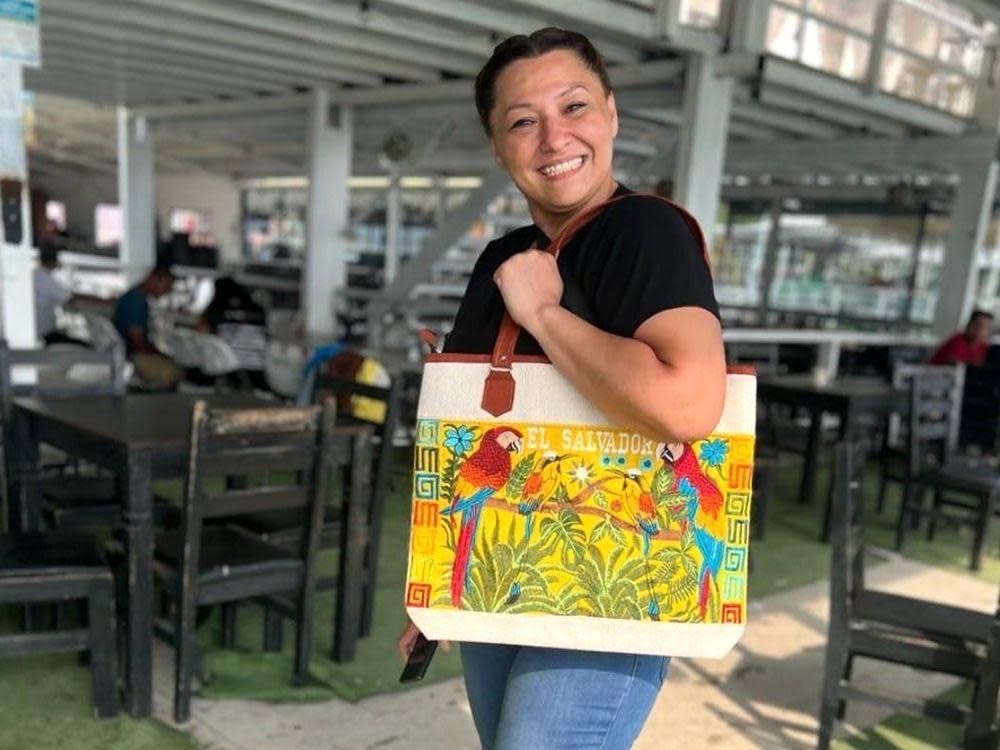
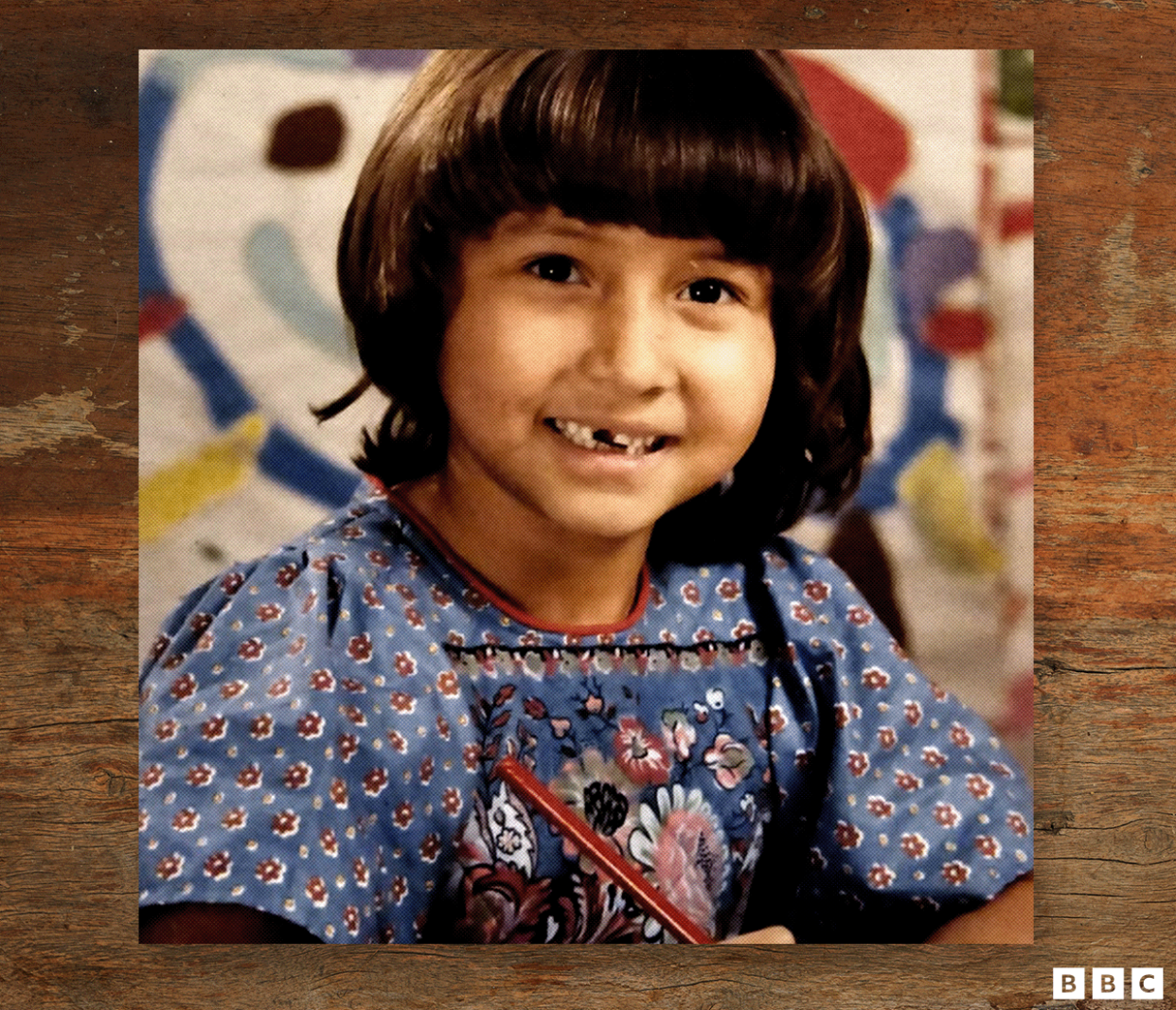
She came to a small shack and ran inside, squeezing her tiny frame behind a wooden table in one corner. "You could still see me," Flor says, "but I didn't know what else to do."
Flor doesn't know how long she spent hiding. But eventually the door opened, and a soldier stepped inside.
"He had a big rifle. He didn't say anything, he just shot me," she says, almost without emotion. "The last thing I remember is him walking towards me before I blacked out."
Pro-Busqueda is a non-governmental organisation dedicated to the search for children who disappeared during the Salvadoran Civil War. It says that babies and young children were regularly seized by the army during anti-guerrilla operations in the early 1980s. Some were taken by soldiers directly from their parents. Others were discovered in hiding places, apparently left behind by their fleeing families.
Margarita Zamora, a lead investigator at the organisation, says many of these children were later given away for adoption: "It was made to look as if their parents had given their consent, but the parents were in fact killed."
Often the army would target children, she says, to terrorise the local population.
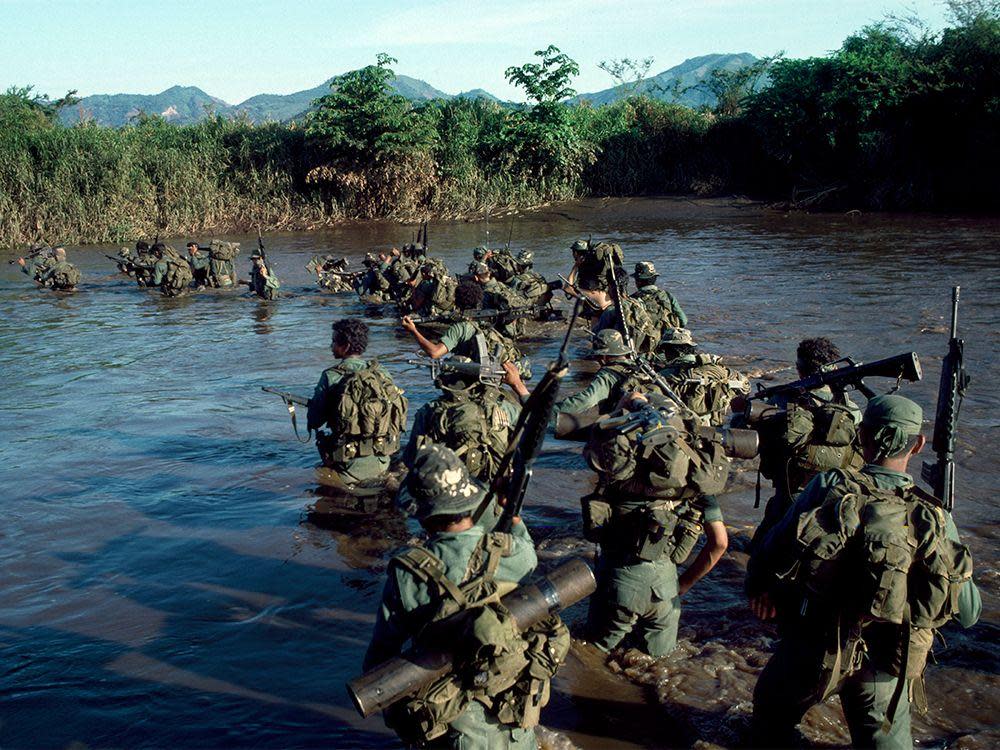
Some 400 children have so far been located by her organisation, Margarita says, many of them having been taken abroad by foreign adoptive parents. But they are still searching for as many as 500 others reported missing during the 12-year war.
Hours - maybe days - after being shot by the soldier, Flor woke up in a house in the capital, San Salvador, far from home. She was now in the care of a foster family. Then, one day, in 1985, when she was five, Flor was taken to the airport and put on a plane with other children.
They landed in the US where a couple from Boston were waiting in the freezing cold. Flor was terrified. In broken Spanish, the wife said they were her new family. They later told her they had been led to believe that her birth parents had both died in the war.
Flor now lives in New York with her teenage daughter. She describes the trauma that dogged her growing up. On one occasion, she says, her adoptive mother got a phone call from Flor's school asking her to come in because she had lined her classmates up in front of her "like a firing squad... and I was standing [in front of them], as if I was shooting them".
"I have always felt alone, I have always wanted to know where I belong," says Flor. "No-one else understands this."
Thousands of miles away, Jazmin Poucel shares many of the same feelings of emptiness.
She is 40 and lives in a small village in south-west France, with her husband Flavien and three of their four children.
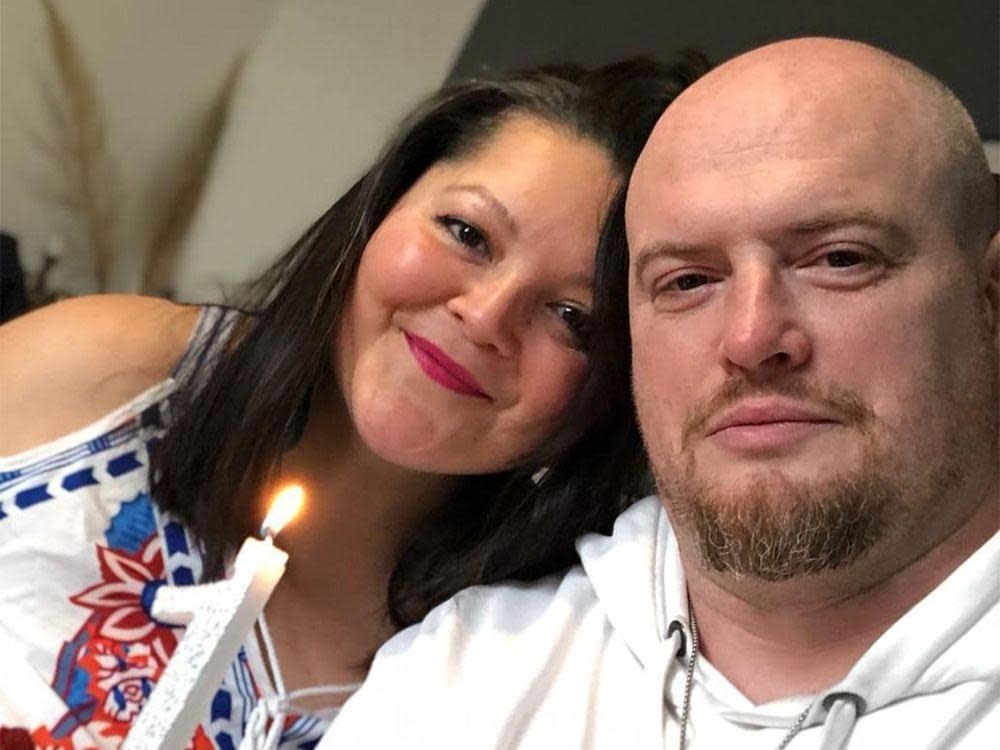
"Since I was a little girl, I wanted to know my true story," Jazmin says. "I knew I was from El Salvador, but when I asked for more, they [my adoptive parents] just said - 'We adopted you and that's all.' I was left feeling like a ghost, totally lost."
Like Flor, Jazmin was adopted at the height of the Salvadoran war. She was just two years old. Her French parents also adopted a little boy from El Salvador.
Jazmin says she was mystified and at times angry at her parents' refusal to talk about their adoptions. "Maybe they were hiding something," she says, shrugging her shoulders, "or maybe they were ashamed they couldn't have children of their own." Either way, it only fed into her desperation to find out more.
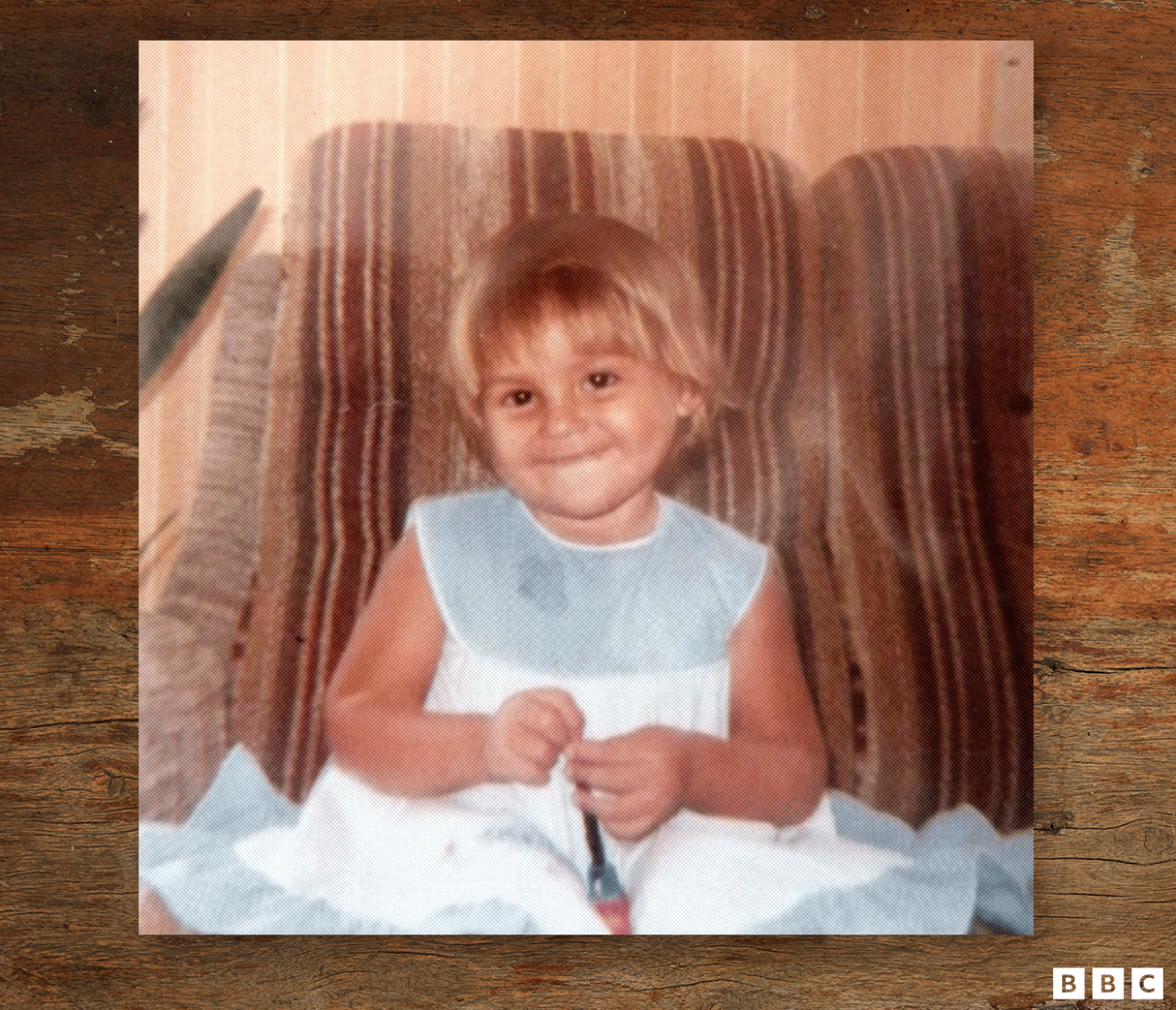
Eventually, when they were in their 20s, Jazmin and her brother were handed copies of their Salvadoran adoption papers. For the first time Jazmin saw her birth mother's name - Antonia Mejia. "Wow, I thought, now I have all the information to search for my biological family!"
Equally determined to find out answers for herself, Flor went searching online. But when she typed in "El Salvador + war + children" she was shocked by what she discovered.
"I started seeing how families were searching for their children, how the military had gone into little villages and taken children and put them in orphanages or up for adoption. And I thought to myself, 'Oh my God, is that me? Have I been missing?'"
In the search for an answer, both Flor and Jazmin contact Pro-Busqueda. They are asked to send copies of their adoption papers, any photographs of themselves as children, and a DNA sample. They are told it could be a long and possibly distressing process.
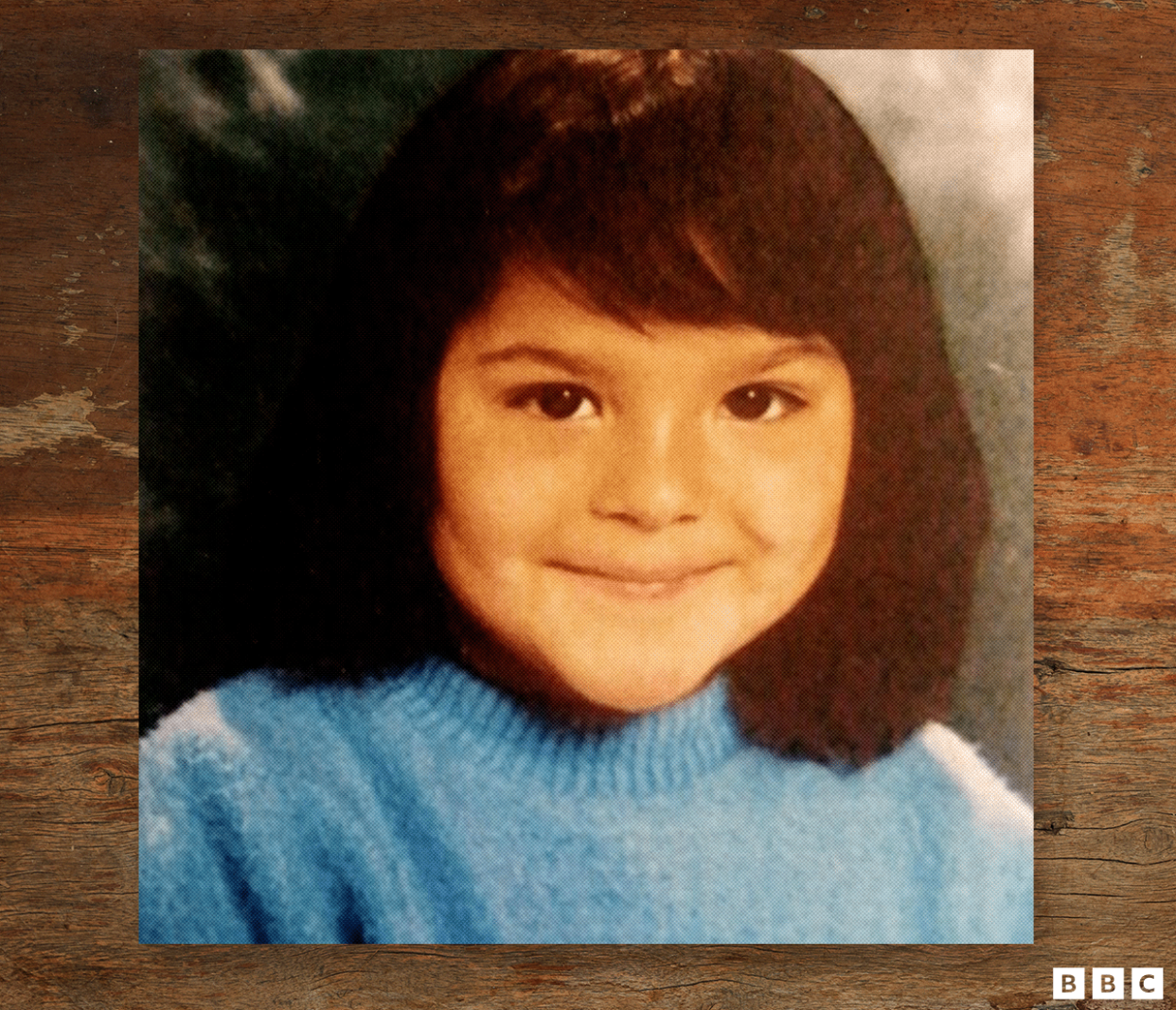
In late 2023, Jazmin receives the result of Pro-Busqueda's research. She is nervous and excited as she speaks via video link to Margarita Zamora and a fellow investigator.
They explain that they have located a sister of Antonia Mejia, who says that she died several years ago. Antonia had three daughters, the youngest of whom was called Jazmin Esmerelda.
However, Antonia's sister also told the investigators that Jazmin Esmeralda was never put up for adoption. In fact, she is currently living in Guatemala.
There is a sudden intake of breath on the line as Jazmin takes this news in. "What does this mean", she asks, "that my adoption papers are false?" She begins to cry. "I always knew something wasn't right," she sobs.

El Salvador's missing children
Can Salvadoran children adopted during the country's civil war find their birth families?
Listen now to Part one and Part two on BBC Sounds

Margarita explains that they've also double-checked with the DNA sample that Jazmin sent from France, and it doesn't match anyone in Antonia Mejia's family. So she couldn't even be a lost daughter. It seems that she was adopted using someone else's identity.
Such cases are not uncommon, says Fr Manuel Acosta, who until recently was a member of an El Salvador national commission on the missing children. He says that back in the 1980s "powerful people like lawyers, military officers and judges, formed illegal networks that trafficked children to foreign parents looking to adopt".
Many foreign couples would have been unaware of where their children really came from, or that someone had reported them missing, Fr Acosta says.
Jazmin, now left in limbo, admits she still doesn't know who she really is.
"Probably I will never know the truth," she says, weeks after getting the devastating news. Margarita and her colleagues have assured her that they will continue their search for answers, and for any birth relatives in El Salvador.
"I will wait for more information," Jazmin says, "but I don't want to be disappointed again."
Meanwhile for Flor, there is a much happier ending.
Using her adoption papers, which (unlike Jazmin's) proved to be genuine, Pro-Busqueda was able to locate four living relatives - two half-brothers, a half-sister, and an uncle - all living in El Salvador. DNA tests confirmed the relationships.
In March 2024, an emotional face-to-face reunion takes place, and is captured on video.
"Don't cry, please, I'm here now," Flor says, as she meets her adult siblings for the very first time.
"I didn't know you existed, they always told me you weren't alive," she tells them.
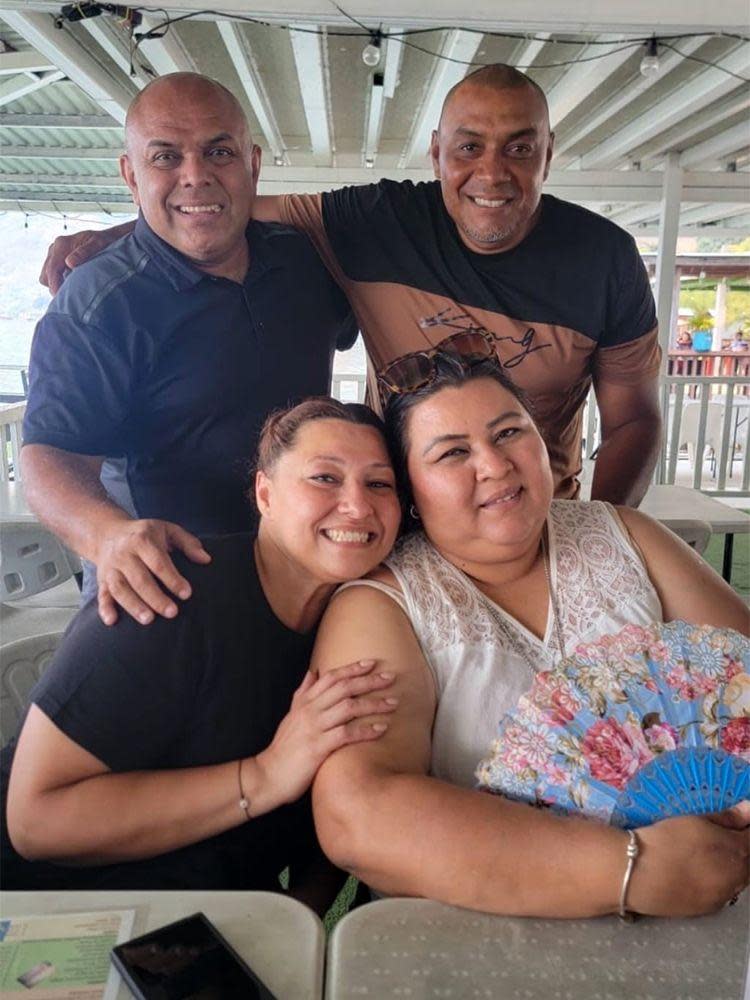
Flor's eldest brother, Marlon, is clinging onto her as they all walk, laughing and joking, the short distance to the family home, a simple adobe building on the hillside. It's easy to spot the family resemblance.
"We spent years looking for you," Marlon says, "and then one day we got the news that you were looking for us!"
Flor has found a whole family she thought she never had. And she has also learnt a new version of her story - and answers to questions that gnawed away at her for so long.
She's been told by her uncle, who served in the Salvadoran Army during the war, that the soldier who shot her had probably mistaken her for the child of a guerrilla fighter. And that once wounded, she was most likely taken by the military and handed over to foster parents.
"I always felt there were so many holes in my story, but I don't feel like that anymore," Flor says, clearly relieved. She intends to return to El Salvador for another visit later this year.
"I used to think I was one of the missing children," she adds, "but I'm not missing anymore."
